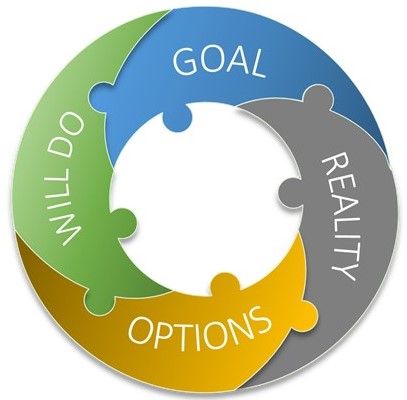Our Coaching Philosophy
The objective of our coaching is improved performance. Almost any part of a person’s life can affect their performance at work. Therefore, we believe in coaching the whole person. If that means we work on conflict resolution, that is what we build our coaching sessions on. If a leader is struggling with work-life harmony, that’s the focus of our work.
Our Coaching Process
Our coaching process is based on the GROW Model developed by Alan Fine, Graham Alexander and Sir John Whitmore. GROW stands for Goal, Reality, Options and Will Do. It is the most utilized performance model in the world, ranging from professional sports to concert violinists to military special operations forces. The advantages of Riverstone’s coaching model include:
Ownership of the coaching process belongs to the coachee, not the coach. The coach facilitates the learning, but the coachee must own it to achieve long-term effectiveness.
- It is iterative. We make the coachee’s view of the coaching topic sufficiently small and focused so that they can get their head wrapped around, be successful at something new and then move to the next “coaching bite.”
- It is not complicated. We don’t wrap our coaching in the latest lingo or fad practice. 99% of all we do is common sense.
We teach others to coach. Through our iterative process, coachee’s learn two skills: self-evaluation and how to coach others by modeling the process.

Our Coaching Experience
Phil Begley has been coaching for over 35 years. He has coached at every conceivable level, including first line supervisors, CEO’s, business owners, and even a Navy Admiral. He is certified to facilitate InsideOut™ Coaching, Alan Fine’s version of GROW coaching from his InsideOut Development organization.
